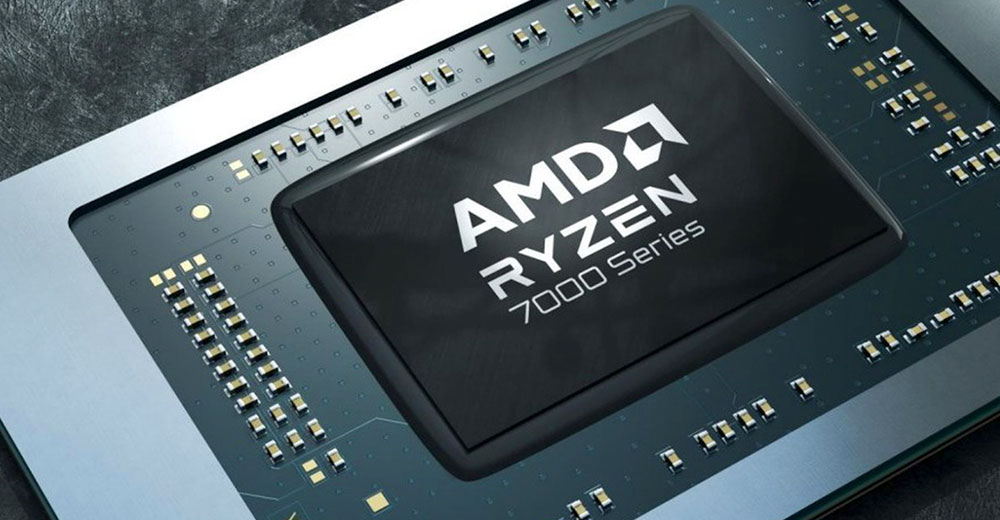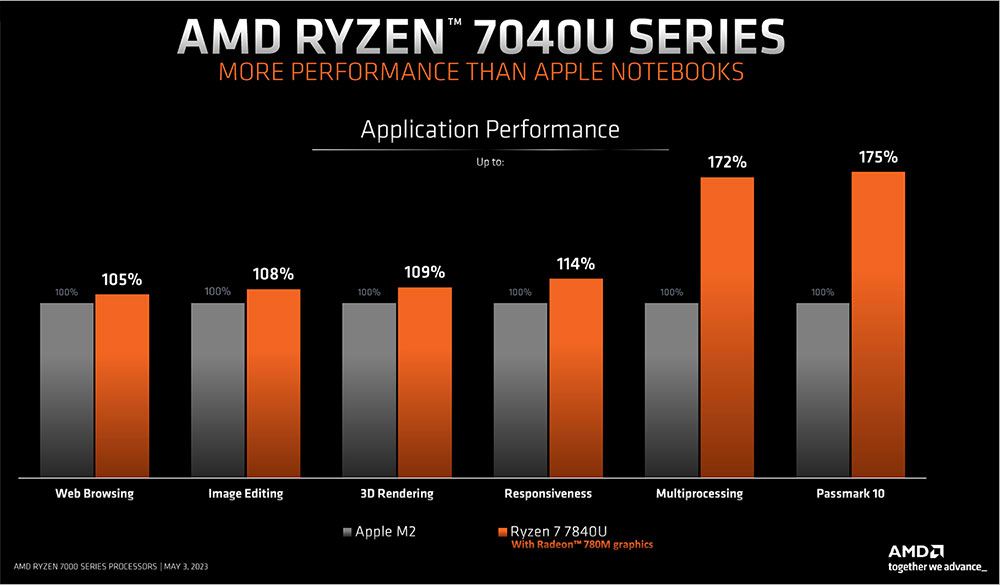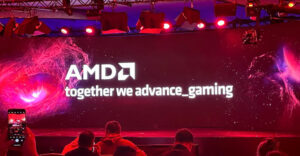Let’s get something straight: if someone had time traveled to 1995 and told me that AMD might be able to “save” the laptop market from Apple with their chips in 2023, I would have immediately asked them how many drinks they had consumed.
After all, the late 1990s was a far different time and space for the PC industry. Intel was the undisputed king of the industry — particularly in the desktop area, as laptops were a relatively nascent market — and its company-owned foundries allowed it to release new processors on a cadence that was not only impressive but also kept competitors such as AMD at bay.
As someone who worked at Compaq as part of the team that qualified and marketed AMD processors for its Presario consumer brand PCs as a hedge against Intel’s impregnable pricing strategy, in my experience, AMD had a reputation as easy to work with — but a Keystone Kops knack for bad, sometimes abysmal, execution.
How quickly things changed after CEO Lisa Siu arrived on the scene at AMD in 2012.
New AMD Chips Might Challenge Apple Silicon
Apple rocked the PC world when it began to ship its own chips, dubbed Apple Silicon, in late 2020. Numerous technology publications and industry pundits were immediately impressed with these new chips’ performance and battery life, especially compared to x86 designs from both AMD and Intel.
Because Apple owns the entire hardware and software stack that allows the company to optimize its macOS for heightened performance, Mac desktops, and laptops quickly became hot, in-demand items. While Windows PCs continue to own a high market share (approximately 58% vs. 30% for macOS), Apple sales have steadily increased over the past few years.
However, the Windows laptop market may be getting a boost. Recently, AMD unveiled a new laptop CPU for thin and light devices that, according to the company, outperforms Apple’s M2 model from a year ago. Is this a true victory for AMD, or is the company selectively focusing on specific performance metrics that distort the real story?
Some Important Background
A few months back, Intel released its Core i9 13980HX, a “notebook” CPU — a charitable description, at best — that it audaciously claimed outperforms Apple’s company’s current fastest processor, the M2 Max. Although the precise claims of performance victories in certain areas were technically valid, many limitations were attached to such assertions.
First, the Intel processor was a highly unusable “notebook” chip since it lost all of its performance advantages the millisecond it went on battery and devoured watts like a person lost in the desert dying of thirst. Moreover, it produced a ton of heat that required fans to run at full capacity whenever a notebook performed anything strenuous. Finally, at almost seven pounds, it wasn’t exactly svelte.
Nevertheless, it outperformed the M2 Max for a few popular but specialized processor-intensive applications with a more potent video card and constant plugged-in use while wearing noise-canceling headphones. Although the concessions were too considerable to be a severe temptation for most Apple consumers, Intel wriggled to get one of its CPUs onto the same playing field.
This type of misstep has resulted in Intel inadvertently conceding that Apple’s M-series is the de facto industry leader with its continued advancement in desktop and mobile computing, power and chip efficiency, and integrated graphics capability. Except for dedicated gaming rigs, Macs became far quicker than any Windows PC in daily usage, starting with the first M1 machines.
It’s AMD’s Time To Step Up to the Plate
The newest member of AMD’s Ryzen 7 family, the 7840U, is the chip the entire PC industry appears to be buzzing about.
It is immediately apparent that this chip is a far more credible competitor than Intel’s 13980HX. Unlike Intel’s disingenuous “notebook” characterization, the 7840U is truly a processor specifically made for thin-and-light laptops. As a result, it must produce less heat and operate more effectively, and that’s just for openers.
Since AMD only introduced this new chip at the end of April, no production machines have yet to use it in real-world testing, which is a crucial point. Despite this, AMD recently posted a series of vague benchmarks that it says demonstrate greater performance over Apple’s basic M2 processor, which is used in the Mac mini, MacBook Air, 13-inch MacBook Pro, and two iPad Pro versions.
AMD Ryzen 7840U vs. Apple M2
Frankly, it is still unknown if the 7840U can sustain this ostensibly impressive performance on batteries and how much battery it uses for comparable workloads because there isn’t a real system to test this on.
The highly generic descriptions of the significant areas of comparison, the narrow differences between the two chips in all but two categories, and the absence of details and sourcing for any of the findings give rise to concerns that must be validated in real-life testing.
AMD Ryzen 7 7840U, part of the Ryzen 7040U Series, benchmark performance versus Apple’s M2 (Chart Credit: AMD)
Even if we accept AMD’s statements on their merit, a closer examination reveals that the company only asserts distinct advantages in two of the six areas that its marketing team chose as “proof” of its superiority. The other four outcomes may be essentially tied within the benchmark test margin of error.
Without question, real-world testing on actual devices can differ significantly from marketing department benchmarks. Still, based on these and other early findings, there is some evidence that it appears AMD has credibly — if only partially — challenged Apple’s M2 hegemony and has significantly defeated Intel’s Core i9 13980HX, which raises even more questions about how far Intel is behind.
With that in mind, the Ryzen 7 7840U is a fully integrated laptop chip that appears to compete with the base M2 processor and maybe the M2 Pro in some areas. That’s a considerable accomplishment.
Even though benchmarking suite scores are competitive, there are other things to consider, as games forced to play on the Intel Core i9 13980HX laptop referenced above experienced a dramatic performance plunge when forced to operate on battery power.
Closing Thoughts
It’s too early to declare AMD’s 7784u as the new heavyweight champion that favorably competes with or even exceeds what Apple has accomplished with its M2.
From a reputational standpoint, AMD recognizes the stakes here. We should presume that AMD measured the metrics for their comparison table under the laptop’s optimal circumstances: while connected to AC power and without considering factors like heat and battery consumption. From my viewpoint, that approach seems perfectly rational.
But let’s be clear. My interactions with AMD tend to confirm that the company is working overtime to produce the best-performing silicon. In my discussions with AMD executives, they are not dismissive of Apple’s engineering capability (unlike Intel).
The post-pandemic PC market is currently in a growth funk, unlikely to change for several quarters. Companies like HP, Dell, and Lenovo have produced some of the most beautiful laptop designs seen in years. However, without best-in-class chips, consumers and corporate customers may be willing to consider non-Windows alternatives despite generally higher prices for Apple products.
If AMD’s 7840U turns out as advertised, it will give the Windows laptop space a much-needed jolt of adrenalin. No one likes for any company, including Apple, to operate without competition, and AMD’s work here could be music to customers’ ears.


























































